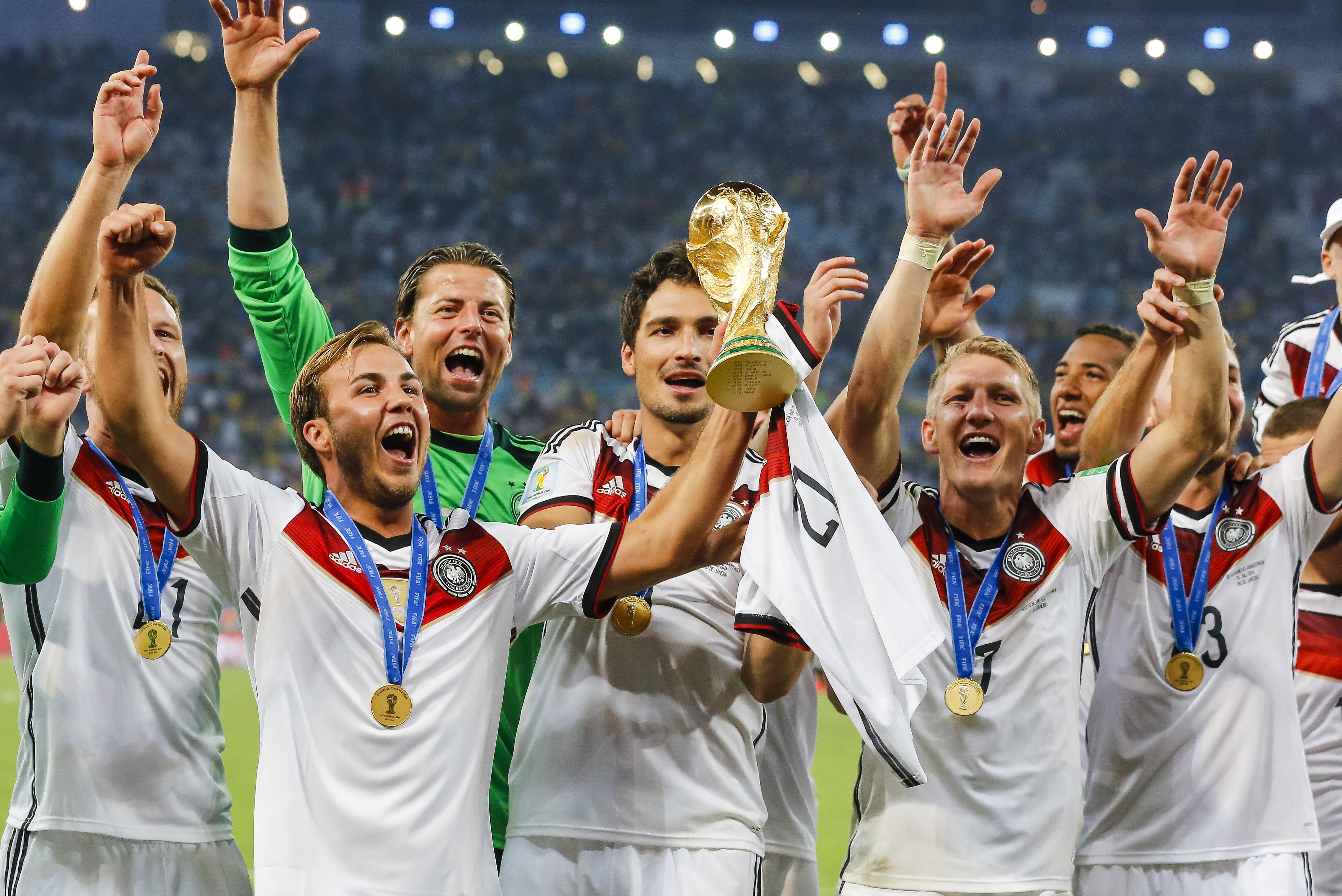13 July 2014. Germany have just beaten Argentina in the World Cup final, with Mario Goetze’s goal delighting the 75,000 fans at the Maracana in Rio de Janeiro. What follows are scenes of glorious triumph and bitter heartache from the winners and losers respectively, and when Bastian Schweinsteiger hoisted that famous trophy over his head, no one would dare say that Germany were undeserved victors. Fireworks spritz in the background as luminous golden confetti shower the winning team with radiance, leaving us all with an instantly iconic image. This scene, however, was accompanied with the inconvenient truth; that the next World Cup was a whole 4 years away.
The World Cup is the most-watched sporting event on Earth, with 32 teams battling it out for football’s most coveted prize. Most people are attracted by the dazzling competition, whether it is the insane skills or the sheer excitement that takes your fancy. Some are drawn by the animated pundits, be it on RTE, BBC or ITV. Even fashionistas enjoy the bizarre jersey designs, within reason of course (Ghana’s 2010 away strip was an eyesore). Despite this, there will always be the malcontents: those contrarians who complain about the lack of quality television for the next month, always moaning the same question; “What’s all the fuss about?”
Joking aside, it is a very important issue; what is it that sets the World Cup apart from other international competitions, such as the Olympics? Why has this tournament become more significant from a footballing perspective in recent years? Indeed, what is the big deal? Over the next few weeks, Trinity News will endeavour to explore the magic of the FIFA World Cup, from the shock exits to the surprise teams, from the breakthrough stars to those who fail to live up to the hype. In the meantime, while waiting for the festivities to commence, enjoy this piece on why the World Cup deserves the prestige it receives.
To do so, let’s compare the event to its closest rival, the Olympics, which also occurs every four years, and captivates audiences of similar size. The difference lies in their formats. It can be argued, albeit controversially, that, for countries, it is easier to attain Olympic success. With so many different disciplines to choose from, national bodies can elect to specialise in one sport in order to bring home the gold. For instance, Ireland favour boxing and equestrian events over other sports, thereby claiming more medals. Between the summer and winter games, countries have a greater probability of arriving home with some type of metal.
The World Cup, conversely, is a lot stricter, with football being the only language spoken. Here, there is one set of rules that all teams must adhere to (and with which to be creative) – no variety and certainly no alternative to the beautiful game. Each participant qualifies in the same manner, with equal opportunity given to big fish and minnows alike. The existence of a standardised assessment for teams affords countries a clear and concise way to properly measure their sporting acumen. Moreover, it is a far more appealing method of exercising bragging rights. People may not be bothered about being poor at athletics, but being beaten by another country in football can leave a deep dent in anyone’s national pride, particularly with all the world watching.
The arrival of the tournament has come at a very important time, as it stands as one of the few pillars of the, “old way,” of football. The club game has undergone massive change in recent years, with more interest in the business side of the sport. The owners of the top clubs in domestic competitions invest heavily to bring in massive talent from overseas to pack their trophy cabinet with silverware, which has upset the purists, who see no room at the top for traditional clubs like Burnley in England, or Lazio in Italy. It’s happened in Spain with Real Madrid and France with Paris St-Germain. It’s even happening in England with Man City.
International football, on the other hand, cannot be treated like an investment portfolio. Of course, money plays a role, but it will only get you so far. To be successful on the world stage, you need a deep pool of footballing talent, with a rich culture and heritage within the game, as is the case in mainland Europe and in South America. Behind a great team is a better manager, who is dedicated to their success. Then, supporting them is a large legion of loyal, energetic fans, many of whom willingly follow their team into unknown territory, in the hope that their team can finally sit at the top table. The World Cup remains the sole survivor of football’s past, where winners were decided by merit and not their deep pockets. In an age where success in football has become a commodity, competitions like the World Cup are all the more valuable.
So, to address the doubters among you, the World Cup is about more than just football. As the next four and a half weeks will illustrate, there are many components to the greatest tournament in the world, like the fans, the jerseys, the teams, and of course the feast of skill on show. Maybe you play football and would like to learn from the world’s best as to how to improve your crossing, or you like to savour the delicious drama of the competition. Perhaps you just enjoy watching in anticipation of England’s disastrous exit at the group stages. Whatever you do though, please do not dismiss the competition purely because you have not watched it before – embrace it, because the next one is 4 years away…







